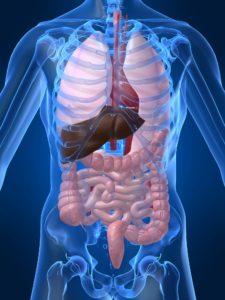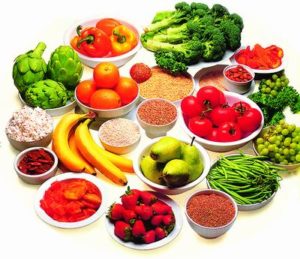In considering a person’s “wellness” we look at both their anatomy and physiology. Anatomy includes the hardscape of an  individual’s body: the skeletal and muscular systems. Then there is the softer structure, the joints, fluid spaces, and disks, which comprise a person’s physiology. This is the realm of swelling, digestion, circulation and other processes in the body that involve fluid. The smooth muscles/organs, such as the heart, stomach, liver and lungs, are all part of our physiology.
individual’s body: the skeletal and muscular systems. Then there is the softer structure, the joints, fluid spaces, and disks, which comprise a person’s physiology. This is the realm of swelling, digestion, circulation and other processes in the body that involve fluid. The smooth muscles/organs, such as the heart, stomach, liver and lungs, are all part of our physiology.
What we often forgot in our quest for wellness is that our anatomy and physiology are created by the food we eat. They are storehouses for nutrients. And they transport material, both good and bad. In this way there is a direct correlation between what we eat and how well our anatomy and physiology function on a daily basis and over time.
Over the years I have found that eating good quality food is more important than exercise. This may sound odd coming from a kinesiologist who has spent a lifetime working with movement, but it’s true. If I’m giving my body the essential nutrients it needs to operate at an optimum then I am dealing with less by-products of the stress of the system. These by-products negatively impact the quality of digestion, respiration, circulation and other physiological processes. And these effects are cumulative.
When a patient is at Dorfman Kinesiology wanting to know the best practices for improving health and wellness the first thing I tell them is to eat what I call “real food”. Real food is something that could have been found in a meal 200 years ago. It’s that basic. Whole fruits, vegetables, grains, beans, seeds, nuts, dairy and meat. To me it’s not a mystery that processed food is challenging for our bodies because our system is not designed to manage that type of input. It’s like a bank dealing with an alien currency. There is no context for the conversion.
For most of us, quantity and quality are the main pieces of the food puzzle. And these pieces change as we age, whether or not we change with them.
 We know that younger people tend to eat a larger amount, but what most don’t realize is that there’s a transition in the mid-40’s to 50’s where our physiology is altered so that it needs a lot less volume to operate at a maximum. It is significantly different than when we were younger and it can be challenging to create new habits.
We know that younger people tend to eat a larger amount, but what most don’t realize is that there’s a transition in the mid-40’s to 50’s where our physiology is altered so that it needs a lot less volume to operate at a maximum. It is significantly different than when we were younger and it can be challenging to create new habits.
Age is also important when it comes to the quality of the food we eat. When people are young it’s really not so bad for them to eat junk. Long term it’s problematic, but in the short term, a young physiology can deal with junk. As we get older our food decisions matter more. If I make good decisions and give my body the stuff it likes, there’s a storehouse of benefits. If I give my body the stuff it doesn’t like there’s a storehouse of accumulation.
Our body is constantly creating and recreating itself. Blood, bones, muscles, nerves, hormones and more are synthesized solely from the essential nutrients in the food we eat. The body is designed to use this specific material in this creation. Processed food is not a part of the equation. It is high in sugars, salt, fat, contains chemical additives and preservatives and is low in nutrients. It will compromise the ability of the anatomy and physiology to have optimal restoration.
Through the mid-30’s most individuals don’t have negative consequences for their diet. Yet, when we start going up the age ladder the system becomes more sensitive. By the time we get to 50 about half the population will experience consequences of their food choices. I’m not talking about digestive problems only, but rather a bigger picture of the whole health of the system. Remember, what we eat significantly affects the building blocks for everything in our bodies. In that light, we want to provide quality substance that our system can maximize through digestion and absorption.
Eating well isn’t difficult. Rather it is a simplification. If you are unsure what to eat, ask yourself if your great-grandparents would have eaten it. If the answer is yes, then you are good to go. Eat basic, eat less, allow your body to operate at an optimum and you will feel better forever.

Hi. You mention meat and dairy in the article, do you recomend these things?
If they are without added hormones, GMOs and other additives. Organic is best in my opinion. In moderation these things can be a part of an optimum diet, but, as always, there are individual health needs to take into account and certainly dairy and meat do not work for everyone.